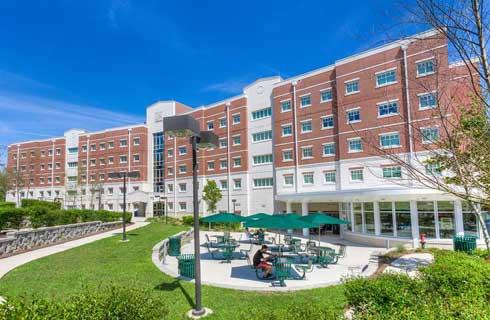Master of Arts in Psychology - Behavioral Neuroscience

学历文凭
Masters Degree

专业院系
Department of Psychology

开学时间

课程时长

课程学费

国际学生入学条件
IDP—雅思考试联合主办方

雅思考试总分
6.0
- 雅思总分:6
- 托福网考总分:61
- 托福笔试总分:160
- 其他语言考试:NA
CRICOS代码:
申请截止日期: 请与IDP联系 以获取详细信息。
课程简介
相关申请
 预科
预科 奖学金
奖学金 实习机会
实习机会 在校学习
在校学习 跨境学习
跨境学习 校园授课-线上开始
校园授课-线上开始 在线/远程学习
在线/远程学习
开学时间&学费
学费信息仅供参考,请与IDP联系以获取详细信息
| 开学时间 | 时长 | 学费 | 地点 |
|---|
学校排名

世界排名201
数据源:
泰晤士高等教育世界大学排名
本校相关课程

Master of Science in Zoology
学历文凭
Masters Degree
开学日期
课程费用总额


Master of Urban and Regional Planning
学历文凭
Masters Degree
开学日期
课程费用总额


Master of Science in Tropical Plant Pathology
学历文凭
Masters Degree
开学日期
课程费用总额


Master of Science in Tropical Plant and Soil Sciences
学历文凭
Masters Degree
开学日期
课程费用总额


Master of Science in Travel Industry Management
学历文凭
Masters Degree
开学日期
课程费用总额


Master of Fine Arts in Theatre
学历文凭
Masters Degree
开学日期
课程费用总额

其他相关课程

Certificate in Applied Behavior Analysis
 德克萨斯农工大学学院站分校
德克萨斯农工大学学院站分校学历文凭
Graduate Certificate
开学日期
课程费用总额


Master of Science in Behavior Analysis
 塞勒姆州立大学
塞勒姆州立大学学历文凭
Masters Degree
开学日期
课程费用总额


Doctor of Philosophy in Psychology - Systems and Behavioral Neuroscience
 弗吉尼亚大学
弗吉尼亚大学学历文凭
Ph.D.
开学日期
课程费用总额


Master of Public Health (Traditional) - Social and Behavioral Sciences
 佛罗里达大学
佛罗里达大学泰晤士高等教育世界大学排名:136
学历文凭
Masters Degree
开学日期
课程费用总额


行为科学文学士学位(迪尔伯恩)
 密歇根大学安娜堡分校
密歇根大学安娜堡分校学历文凭
Bachelor Degree
开学日期
课程费用总额


跨学科研究应用科学学士学位-人性
 湖首大学
湖首大学泰晤士高等教育世界大学排名:1080
学历文凭
Bachelor Degree
开学日期
课程费用总额











